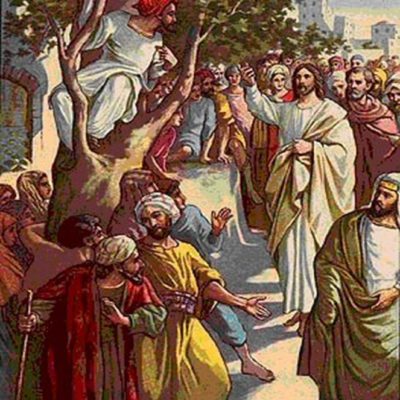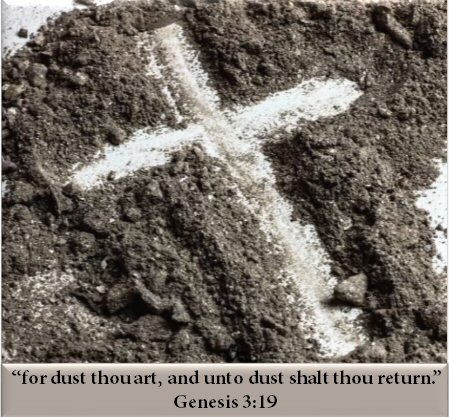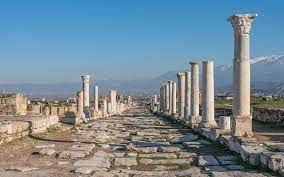Pentecostal Church of God

The Pentecostal Church of God (PCG) is a Trinitarian Pentecostal Christian denomination. The headquartered in Bedford, Texas. The Pentecostal Church of God is a member of the National Association of Evangelicals, the Pentecostal World Conference and the Pentecostal/Charismatic Churches of North America. It was called Pentecostal Church of God of America in the 1930 with the headquarters in Joplin, Missouri. The church dropped the “of America” in 1979. The headquarters for the PCG moved to Bedford, Texas in 2011. The church is led by a General Bishop and a General Convention that meets every second year. It is divided into a number of districts, including four Hispanic districts in the United States. Each district is served by a district bishop, previously district superintendent. District conventions meet annually.
History:
December, 1919, a group of dedicated individuals met in Chicago, Illinois to organize the Pentecostal Church of God. One of these men was Eli DePriest, who reported that after they had concluded the business, prayer was offered, and while they were praying, the building where they were assembled was actually shaken by the power of God! The purpose of this group was to spread the Gospel using evangelism. The Pentecostal Church of God was part of the great Pentecostal revival that began around the turn of the 20th century. The Pentecostal Church of God was part of the great Pentecostal revival that began around the turn of the 20th century.
The 1927 found the beginning of the official paper of the church called the “The Pentecostal Messenger,” became the official paper of the church with A. D. McClure was the editor located in Ottumwa Iowa. The organization of the church in districts also took place in the Ottumwa era.
The words “of America” were added in 1934 because it was discovered that another group was operating under the name Pentecostal Church of God. The 1930’s through the 1940’s saw severe financial problems.
The Pentecostal Church of God offices were moved to Joplin, Missouri in 1951. The PCG continued to grow and God opened new doors of opportunities and ministries. The Messenger Towers, a thirteen story retirement center was built in 1972. The King’s Men Fellowship, Senior Christian Fellowship, Home Missions and Evangelist ministries were established. Messenger Publishing House was constructed in 1987.
A new position paper was adopted in 2003 by the Pentecostal Church of God which updated her position concerning marriage, divorce, and remarriage, adopting a position paper on the subject.
It was during the 2011 General Convention in Dallas, Texas, a decision was made to relocate the International Headquarters of the Pentecostal Church of God and Messenger College to Bedford, Texas.
Beliefs
The Pentecostal Church of God believes the Old and New Testaments of the Bible are the inspired word of God which is the only rule of Christian faith and practice. It is Trinitarian, believing there is only one God who exists as three persons: the Father, the Son and the Holy Spirit who are of one individual essence, who are co-equal, co-existent and co-eternal. (2 Timothy 3:16; Romans 1:20; Colossians 1:16).)
The Pentecostal Church of God believes Man is a created being, made in the likeness and the image of God, but through Adam’s transgression and fall, sin came into the world (Romans 5:12). “All have sinned and come short of the glory of God” (Romans 3:23). “As it is written, there is none righteous, no, not one” (Romans 3:10). Jesus Christ, the Son of God, was manifested to undo the work of the devil, and gave His life and shed His blood to redeem and restore man to God (1 John 3:8).
The Pentecostal Church of God believes Salvation is available through Jesus’ work on the cross and is a gift from God made possible by grace through faith and not by human works. The PCG believes it is possible to lose one’s salvation if one turns away from God. After salvation, a Christian can receive the baptism of the Holy Spirit. The evidence of this baptism is speaking in other tongues. It believes in the doctrine of sanctification as a definite and progressive work of grace. It believes heaven and hell are real places. Heaven is for those who have received the gift of salvation, and hell is for those who have not. (2 Corinthians 7:10; Titus 2:11; Romans 10:13-15; Luke 24:47; Titus 3:5-7). Man is a free moral agent and can at any time after the new birth experience turn away from God and die in a state of sin, with the consequences of hell to look forward to.
The Pentecostal Church of God believes God, through the Holy Spirit, definitely calls such as He desires to serve as apostles, prophets, evangelists, pastors and teachers, and specifically endues the one called with the talents and gifts peculiar to that office or offices (Ephesians 4:11, 12). Under no circumstances should anyone be ordained or set apart to any such office unless the calling is distinct and evident.
The Pentecostal Church of God believes Baptism in water is by immersion, a direct commandment of our Lord (Matthew 28:19), and is for believers only. The ordinance is a symbol of the Christian’s identification with Christ in His death, burial and resurrection (Romans 6:4; Colossians 2:12; Acts 8:36-39). The following recommendation regarding the water baptism formula is adopted: “On the confession of your faith in the Lord Jesus Christ the Son of God, and by His authority, I baptize you in the name of the Father, and of the Son, and of the Holy Ghost. Amen.”
The Pentecostal Church of God believes The Bible teaches that without holiness no man can see the Lord (Hebrews 12:14). We believe in the doctrine of sanctification as a definite, yet progressive, work of grace, commencing at the time of regeneration and continuing until the consummation of salvation (Hebrews 13:12; 2 Thessalonians 2:13; 1 Peter 1:2; Ephesians 5:26; 1 Corinthians 6:11; John 17:17; 1 Thessalonians 5:23).
The Pentecostal Church of God believes there are three ordinances: water baptism, the Lord’s Supper, and foot washing. Water baptism is by immersion and is for believers only. Baptism is a symbol of identification with Christ’s death, burial, and resurrection. The Lord’s Supper is a memorial to Christ’s death and resurrection. The PCG only uses unfermented grape juice. Though not an ordinance, divine healing is believed to be provided for in the atonement of Christ and available to all believers. It also believes in the giving of tithes.
The Pentecostal Church of God believes the ordinance of the Lord’s Supper is a commandment of our Savior; and being a memorial to His death and resurrection, is strictly limited to Christian believers (1 Corinthians 11:27). The time and frequency of its observance is left to the discretion of each congregation (1 Corinthians 11:26). Only unfermented grape juice, the fruit of the vine, as recommended by our Lord (Matthew 26:29; Mark 14:25; Luke 22:18) shall be used in connection therewith.
The Pentecostal Church of God believes Foot washing is recognized among many believers as a Christian practice, and the time, manner and frequency of its observance is left to the discretion of each local congregation (John 13).
The Pentecostal Church of God believes Divine Healing is for the physical ills of the human body and is wrought by the power of God, through the prayer of faith, and by the laying on of hands (Mark 16:18; James 5:14, 15). It is provided for in the atonement of Christ and is available to all who truly believe.
The Pentecostal Church of God believes that Christ will return and that his return is imminent. It believes his coming will be personal, pre-tribulational, and pre-millennial. The Resurrection of the Just “The dead in Christ shall rise first: Then we which are alive and remain shall be caught up together with them in the clouds, to meet the Lord in the air” (1 Thessalonians 4:16, 17). Following the tribulation, He shall return to earth as King of kings and Lord of lords, and together with His saints, who shall be kings and priests, He shall reign a thousand years (Revelation 20:6).
The Pentecostal Church of God believes those who physically dies in his sins without Christ is hopelessly and eternally lost in the Lake of Fire, and therefore has no further opportunity of hearing the gospel or for repentance (Hebrews 9:27). The Lake of Fire is literal (Revelation 19:20). The terms “eternal” and “everlasting” used in describing the duration of the punishment of the damned (Matthew 25:41-46) in the lake of fire, carry the same thought and meaning of endless existence, as used in denoting the duration of joy and ecstasy of saints in the presence of God.
The Pentecostal Church of God believes the scriptural duty of all our people, as well as ministers, to pay tithes as unto the Lord (Hebrews 7:8). Tithes should be used for the support of the active ministry and for the propagation of the gospel and work of the Lord in general and not given to charity or used for other purposes (Malachi 3:7-11; Hebrews 7:2; 1 Corinthians 9:7-11; 16:2).
Reference:
Official Website Pentecostal Church of God can be found: http://www.pcg.org/
Cite Article Source
MLA Style Citation:
Holstein, Joanne “Pentecostal Church of God:.” Becker Bible Studies Library Aug 2013.< https://guidedbiblestudies.com/?p=2446 Z,>.
APA Style Citation:
Holstein, Joanne (2013, August) “Pentecostal Church of God:.” Becker Bible Studies Library. Retrieved from https://guidedbiblestudies.com/?p=2446 Z,.
Chicago Style Citation:
Holstein, Joanne (2013) “Pentecostal Church of God:.” Becker Bible Studies Library (August), https://guidedbiblestudies.com/?p=2446, (accessed).
Churches harismatic church Pentecostal Pentecostal Church of God Pentecostal Messenger salvation Trinitarian


